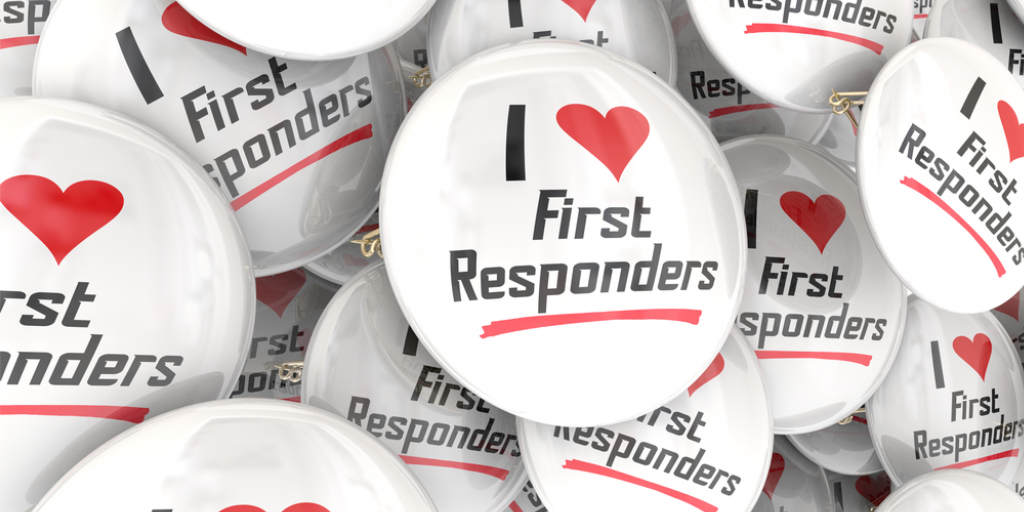
The scene was horrific. It was the worst accident they’d seen in years. Two cars. One totaled. Three dead – including two kids.
Linda, one of the responding paramedics, helped transport the two deceased children. Her partner, Rob, did what he could to console the surviving mom.
Devan was on the fire engine that responded to the emergency call. He helped free the accident victims from the vehicles. But they were too late to save those kids.
Kara and Justin were on patrol nearby when the call came in, so they were the first police officers on the scene. They would have to file a report detailing what they found when they arrived, and follow up with charges against the guy who ran the red light. He was so distraught about what he had done that they had to restrain him on the scene – while also diverting traffic around the accident.
Hours later, each of these first responders end their shifts. Linda goes home and takes a Xanax to help her relax and get some sleep. Devan and some of his firefighter buddies head to the bar to unwind. And Justin pops a pain pill to relieve the ache from his old shoulder wound – which flared up again today when he restrained the driver.
Trauma: Up Close and Personal
They’ve seen devastation and loss. They’ve been in stressful, dangerous situations. Their jobs are physically and emotionally draining. They deal with trauma first hand, in an up-close-and-personal way, nearly every day. And at times, their shifts are long, with little rest.
First responders often face life-threatening situations and traumatic events. The conditions are stressful – for their minds and bodies. And as they seek relief for that stress, they may slip into unhealthy patterns.
The paramedic starts taking benzos daily to help her sleep, and she gets hooked quickly. The firefighter’s social drinking turns into regular, heavy drinking to cope with what he’s seen, and he develops an alcohol use disorder. The police officer who was injured on the job becomes physically and psychologically dependent on pain pills.
It can happen all too easily. And too often, it does.
Untreated Trauma and First Responders
The trauma first responders encounter can lead to trauma in their own lives. The stress they experience can cause PTSD, depression, anxiety, and other mental health disorders. In fact, the Journal of Emergency Services reports that first responders “are at a significantly increased risk for PTSD based on their day-to-day work experiences.”
- Up to 37% of firefighters meet the diagnostic criteria for PTSD.
- Up to 24% of dispatchers and 25% of police officers struggle with PTSD.
- More than 20% of Emergency Medical Services (EMS) workers experience PTSD.
And if these conditions aren’t managed in healthy ways, first responders’ poor coping strategies can lead to drug and alcohol use disorders.
- Nearly 8% of police officers have abused alcohol or been dependent on alcohol at some point.
- Nearly 50% of male fire fighters struggle with drinking, including binge drinking.
- Up to 36% of EMS workers experience depression.
Additional Risk Factors for First Responders
What else is going on here? Besides the increased trauma that puts first responders at risk of addiction, two other factors are often at play.
First, these professionals may not get the treatment they need for their mental health. Too often, first responders – whose job it is to help people – need help, too. But they don’t get it. Their mental health suffers. And they start abusing drugs and alcohol to dull their symptoms. Which leads to addiction.
Why don’t they get help? They may not feel comfortable seeking help for their mental and emotional struggles. They may feel that their role requires them to “be strong,” and they view counseling or other supports as a sign of weakness. Or they may be ashamed to admit they are struggling with substance use. Or they may not have access to treatment options or know about the options available.
But they may have easy access to substances. This is the second factor that increases addiction risk for first responders. Due to their jobs, they may have increased access to drugs such as Vicodin, morphine, or OxyContin. This can lead to misuse of these substances, because they are so easy to come by.
Faced with this trifecta – trauma, untreated mental illness, and easy access to drugs – it’s easy to see why addiction is common among first responders.
Fortunately, the same treatment that works for others can also work for first responders. Help is available today for these front-line workers who put their lives on the line every day. Help for better mental health. And help for freedom from addiction.